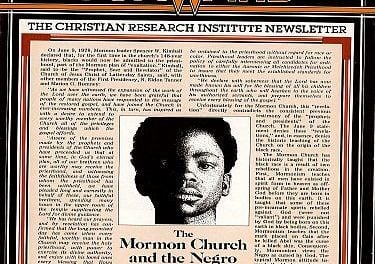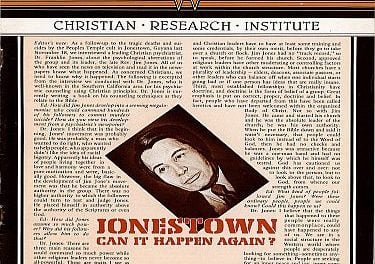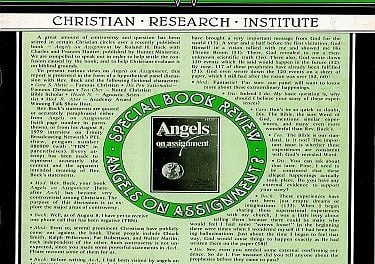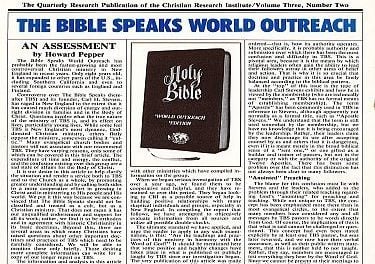Volume 38:Issue 4
CONTENTS:
04 From the Editor
Reading between the Lines
06 Effective Evangelism
Taking Jesus to Work
08 Practical Hermeneutics
Deuteronomy 6:4 and the Trinity: How Can Jews and Christians Both Embrace the Echad of the Shema?
10Putting Race in Biblical Perspective
by Jemar Tisby
Ethical and Cultural Discernment: Over the past year, American news has been dominated by one story after another of a black man being fatally injured in a confrontation with police. Allegations of racism have followed each case, accompanied by discussions, debates, demonstrations, and disturbances with an intensity unseen since the 1960s. What kind of healing can Christian faith bring to this national divide?
18 Developing Discernment in Devotional Reading: A Critical Examination of Jesus Calling and One Thousand Gifts
by Adam C. Pelser
Christian Growth/Spiritual Discernment: At its best, Christian growth literature guides believers to practices that foster abundant, fruitful life in Christ. At its worst, it distorts the gospel and encourages practices that actually hinder growth. Adam C. Pelser provides principles for discerning good spiritual growth literature from bad and applies the principles to evaluate two wildly popular books in this genre.
26 How Christianity Led to the Rise of Modern Science
by James Hannam
Historical/Scientific Apologetics: Although neither ancient Greek pagans nor medieval Christians intended to produce objective studies of nature, the metaphysical assumptions of Christianity, unlike those of the Greeks, turned out to be extremely conducive to uncovering true knowledge about nature. It was therefore Christians who (unknowingly) laid the foundations for modern science.
34The Enduring Value of a Christian Liberal Arts Education
by Paul J. Maurer
Christian Growth/Cultural Discernment: A growing body of work describes how higher education has lost its way. These critiques highlight an academic environment in which Christian liberal arts institutions have become more valuable than ever, thanks to their ability to educate the whole person within the context of a comprehensive ethical and educational framework.
40 Biology’s Blind Spot: Two Views on Human Origins
by Ann Gauger
Scientific Discernment (A Summary Critique): In Ancestors in Our Genome: The New Science of Human Evolution, molecular anthropologist Eugene E. Harris provides an accurate and accessible exposition of current scientific opinion concerning human origins. However, one of his assumptions makes much of what he says about evidence from the human genome no better than hypothetical: common descent.
46 Hath God Said? Assessing the Church’s “Change of Heart” about Homosexuality
by Joe Dallas
Ethical/Cultural Discernment: Recently Time magazine accurately noted a number of prominent evangelical churches and leaders who have reversed their positions on homosexuality. Time concluded that “change is coming to one of the last redoubts of opposition to gay marriage in America.” Is modern evangelicalism on the cusp of embracing a God-ordained civil rights movement or a grotesque error masquerading as reformation?
52 Is It Immoral to Believe in God?
by Matthew Flannagan
Philosophical Apologetics: Some skeptics maintain that believing in God is not only irrational but also immoral. The philosopher Michael Ruse thinks there is “paltry evidence” for God’s existence, and theists continue to believe in God solely on the basis of indoctrination and self-deception, which warrants a powerful moral objection to theism. Really?
59 Reviews
A Summary Critique: Ralph E. MacKenzie’s Revealing Snapshots: People and Events That Shaped Christianity
60 Viewpoint
Modesty, Objectivism, and Human Value
62 Ask Hank
What Is the Mystery of the A-G-E-S?



